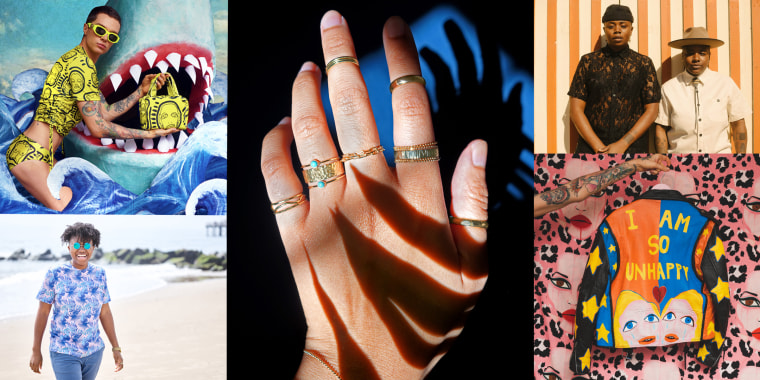Pride Month has come to an end, but your support for LGBTQ communities doesn't have to wait until next summer.
There are more than 28 million small businesses in the United States, but only 909 of them have been officially certified as LGBT Business Enterprises, according to the most recent report by the National LGBT Chamber of Commerce. Even if you’re not ready to go out shopping in your own community due to the coronavirus pandemic, you can still support plenty of queer-led businesses from the comfort of your own home.
Here are eight queer-led fashion brands you can support all year long.
Official Rebrand
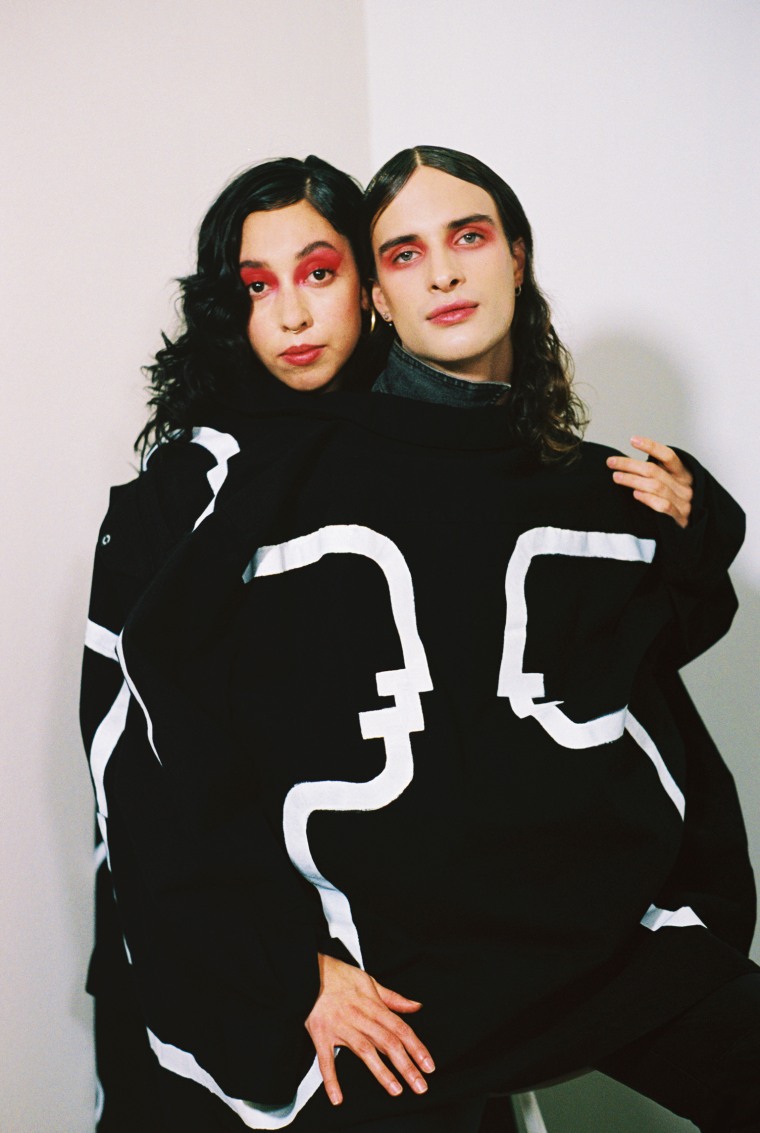
MI Leggett is the brains behind the label Official Rebrand. Leggett, a nonbinary artist based in New York, reinvents discarded or donated clothing with a myriad of altercations, paintings, prints and drawings. They became interested in the intersection between fashion and sustainability after working with a sustainable agriculture nonprofit as a teen, so their collections all feature environmentally conscious, anti-waste clothing.
These upcycled clothes also aren't limited to traditional gender categories. Leggett uses the term “gender-free” to describe their clothes, telling WWD in January, “It’s kind of a play on gluten-free. If you don’t tolerate gluten, you don’t have to consume it, so I thought it was a funny play.”
Kirrin Finch
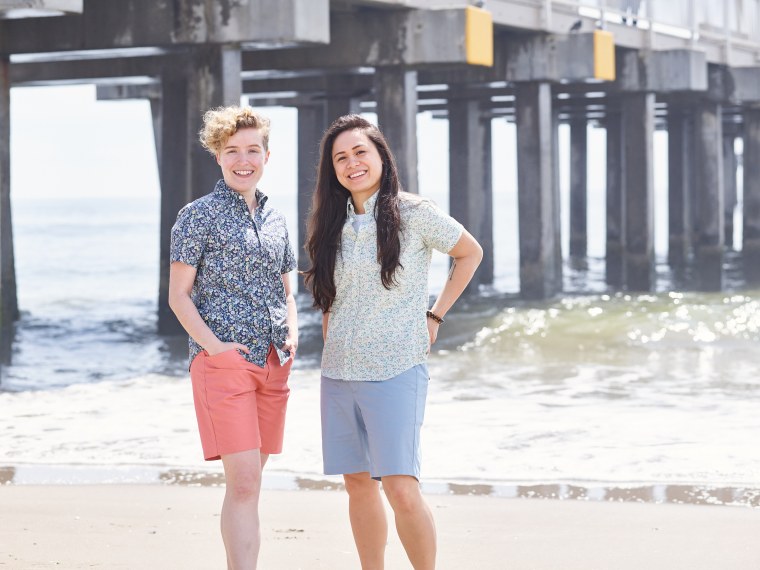
Laura and Kelly Sanders Moffat founded their clothing company, Kirrin Finch, after feeling frustrated from trying to find clothes that fit well or catered to their personal style. The Kirrin Finch website says that the Moffats “tend to gravitate toward button-up shirts and bow ties,” so they decided to create menswear-inspired clothes for women and nonbinary identifying people.
The brand is named after two fictional tomboys, Georgina Kirrin from “The Famous Five” and Scout Finch from “To Kill a Mockingbird,” and each shirt is named after another tomboy character. The brand strives to create clothing that breaks down gender barriers and encourages freedom of expression, but it also practices sustainable production. The shirts at Kirrin Finch are all made with natural materials and are produced in factories that follow ethical labor practices.
Rebirth Garments
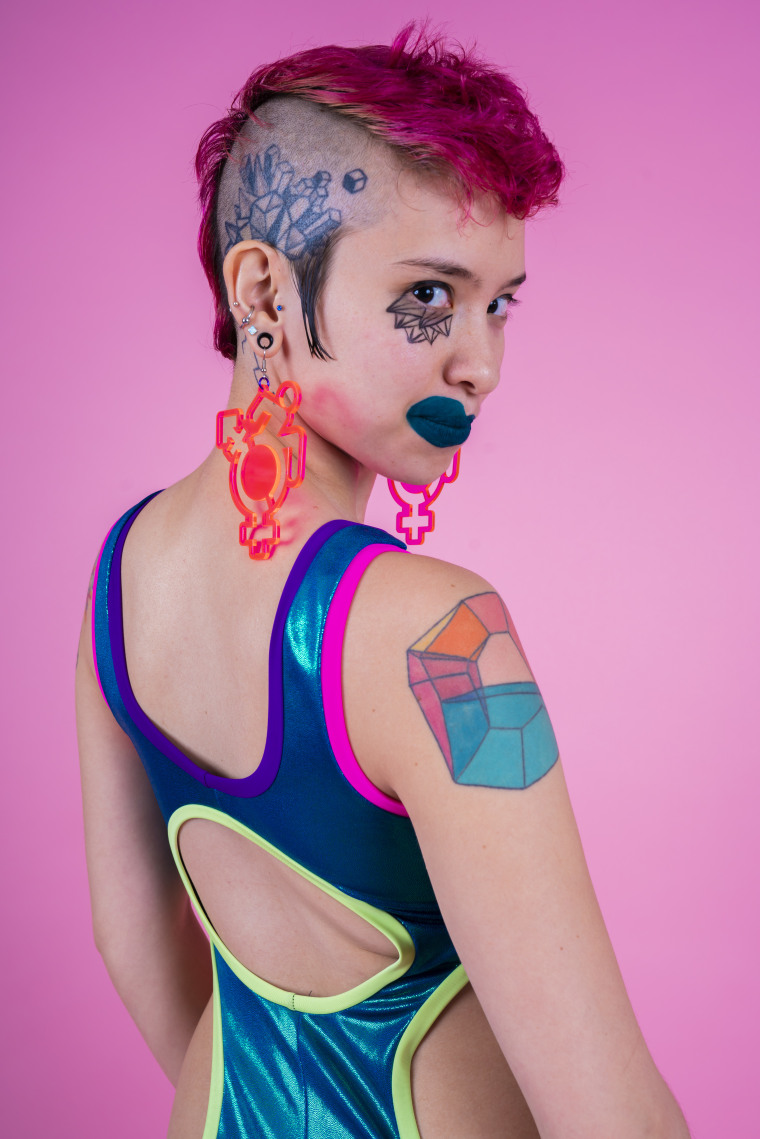
Rebirth Garments was founded by Sky Cubacub, who identifies as a nonbinary, queer and disabled Filipinx. Cubacub designs each piece by hand for people of all sizes, abilities and genders. Since transgender and disabled individuals in particular often have very specific clothing needs, Cubacub makes a conscious effort to cater to that community. The brand is known for using bright and bold fabrics in an effort to celebrate all different types of bodies and identities.
Bowtie Behavior
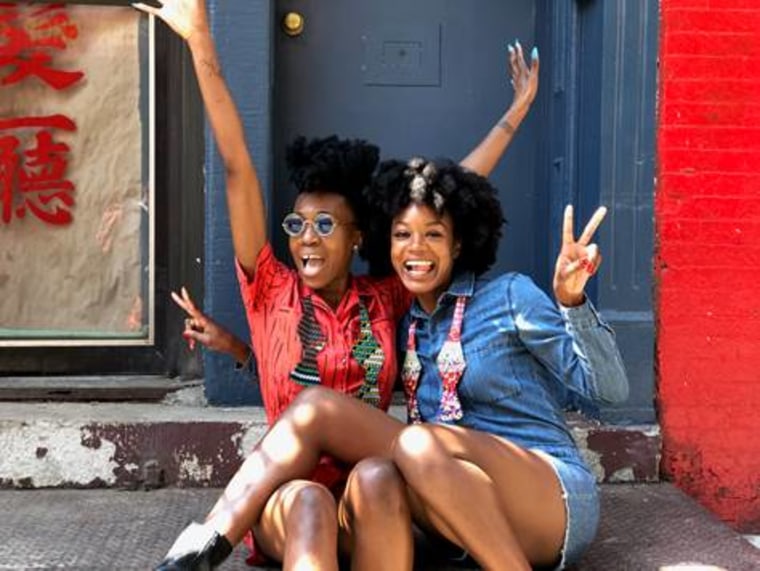
Robbie Williams created Bowtie Behavior after struggling to find an affordable bow tie to wear to her best friend’s bow-tie-themed bridal shower. With no formal design education, Williams taught herself how to sew, and now creates bright and bold bow ties and pocket squares. Williams strives to design bow ties that are accessible, affordable and special enough for outfits to be built around.
Automic Gold
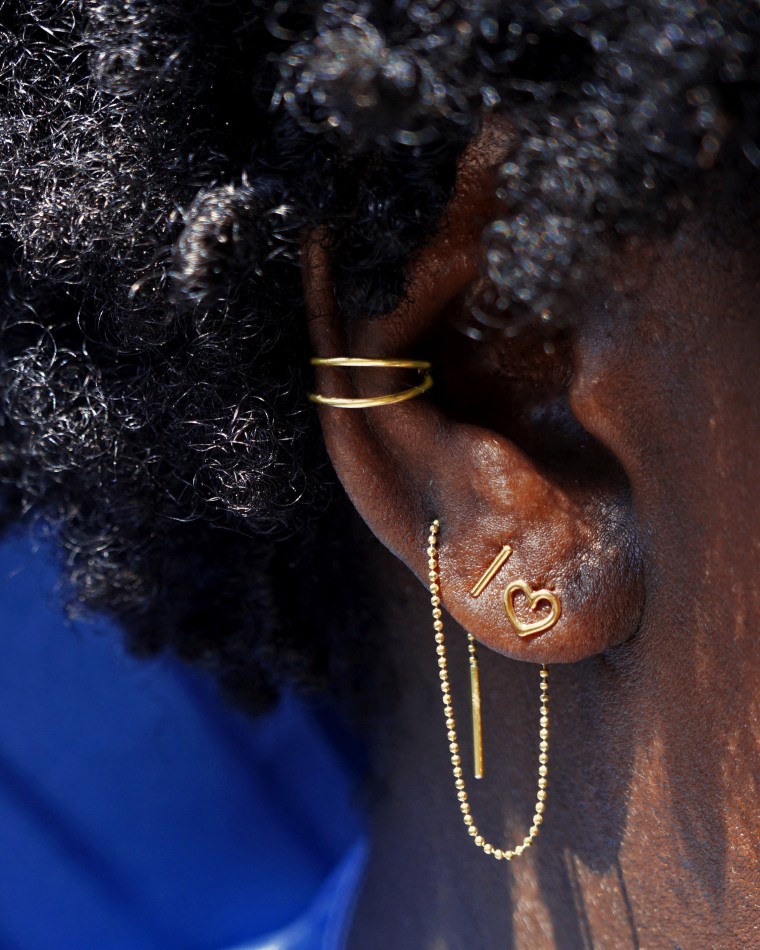
Automic Gold is a company that is inclusive in every sense of the word. Founder Al Sandimirova wanted to create a jewelry business that produces high-quality, accessible and fairly priced pieces for everyone. In fact, the fine jewelry company sells rings ranging from sizes 2 to 16.
All of Automic Gold’s pieces are made of 100-percent recycled gold, natural diamonds and ethically sourced white opals, and every item is made by hand in their New York City headquarters. Additionally, Automic Gold does not use Photoshop on images and works to hire queer, size-inclusive and non-white models to emphasize that their jewelry is truly for everyone.
Patrick Church
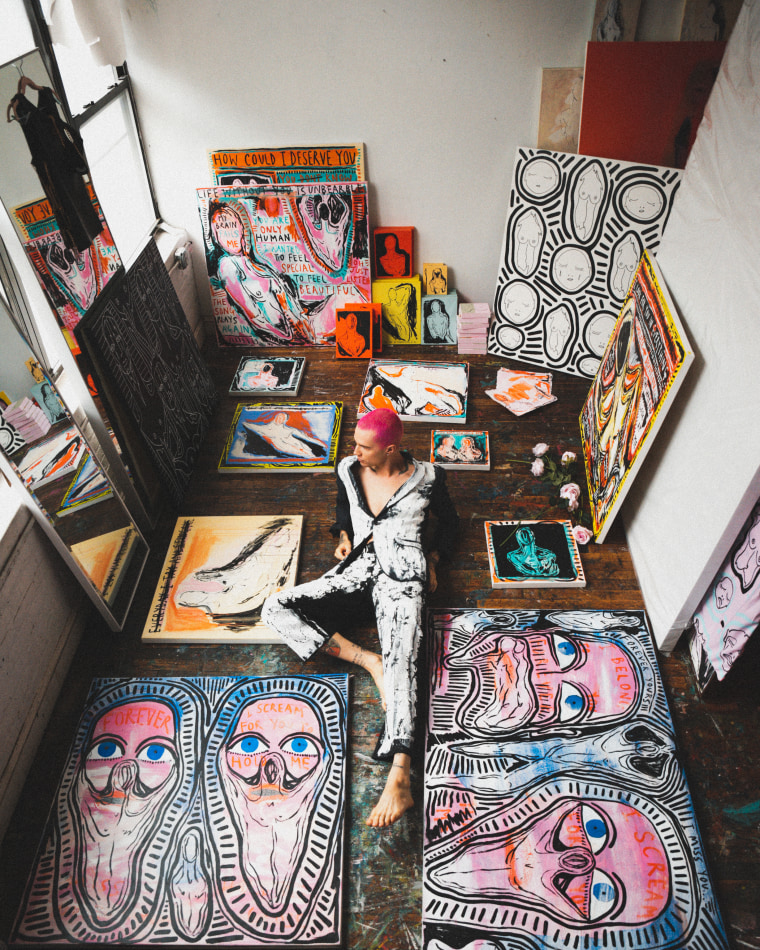
British-born artist and designer Patrick Church has taken the New York City fashion scene by storm. He started his business in his bedroom after painting his signature patterns and colors directly onto different fabrics.
Each piece is a unique look into part of Church’s own life, as he often draws inspiration from his identity and experiences with love. Church makes an effort to be inclusive by working with models of all ages, sizes and genders, often highlighting queer people of color in his campaigns. He took inclusivity to a new level with the presentation of his collection “A Hell of My Own Making” by opening it to the public and transforming the attendees into the collection's models.
Stuzo Clothing
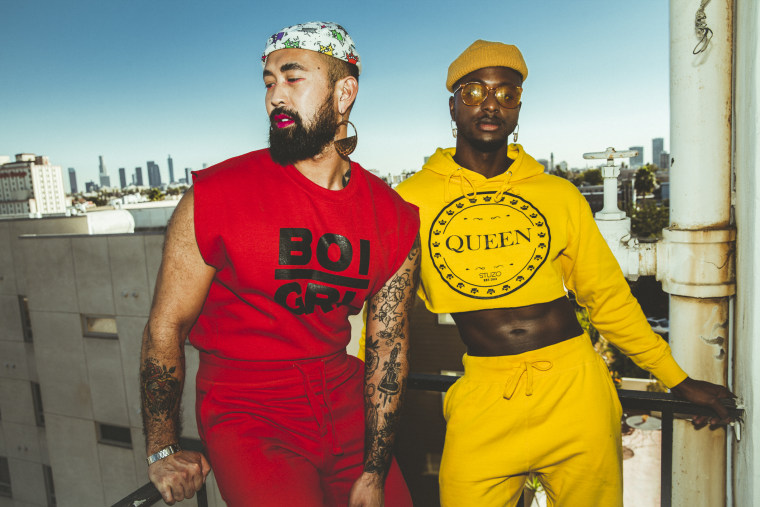
Gender-free clothing company Stuzo Clothing, named after a combination of founders Stoney Michelli and Uzo Ejikeme names, is based in Los Angeles and sells a series of graphic T-shirts, hats, sweatshirts and pants designed to empower those who wear them. As stated on the company’s website, none of the clothing conforms to the gender binary “because clothes don’t have any organs last time we checked.” Michelli and Ejikeme draw their inspiration from love and life, and they aim to celebrate people in "whatever shape or form you choose to exist in."
A Tribe Called Queer
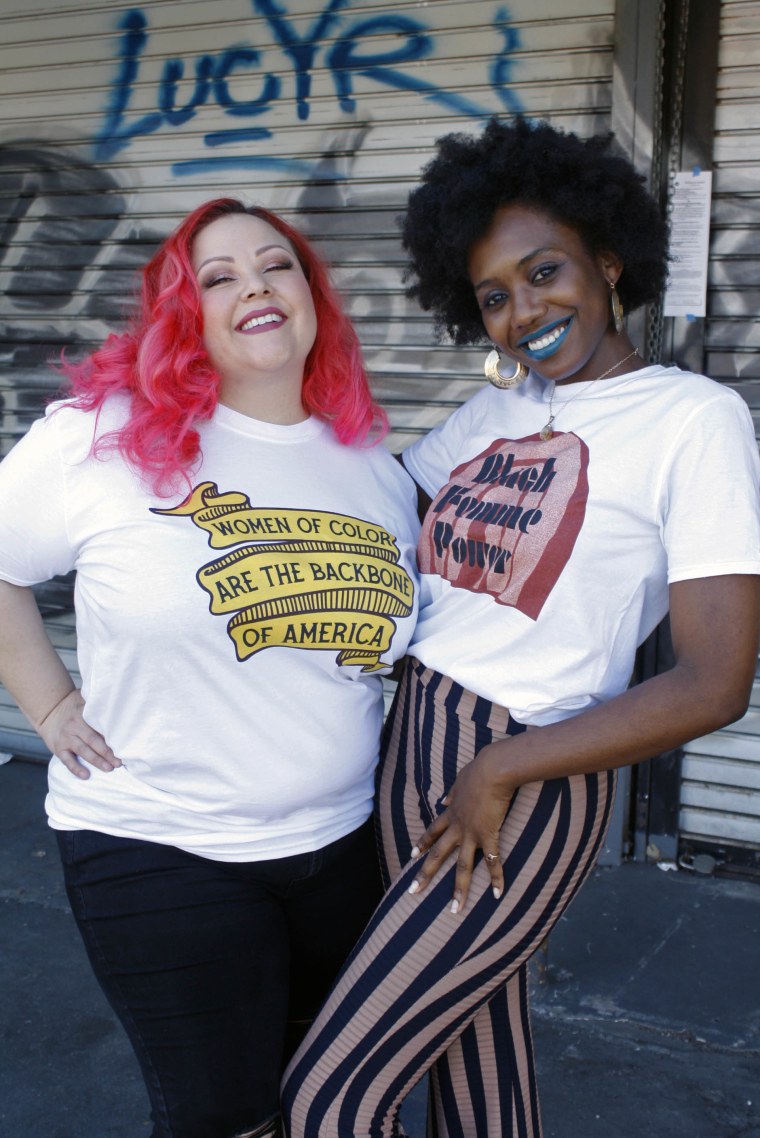
Sabine Maxine Lopez is the founder of A Tribe Called Queer, which sells a series of graphic T-shirts, hats, stickers and totes. Lopez identifies as a queer femme of color, and she also owns and operates a vintage Etsy shop called Patty Wack Vintage. Lopez believes that it is vital for queer people of color to share their creativity with others. “We are a special type of being and we're finally encouraged to shine,” Lopez wrote in a blog post. “To the world I say... sit back... we got it from here!”


